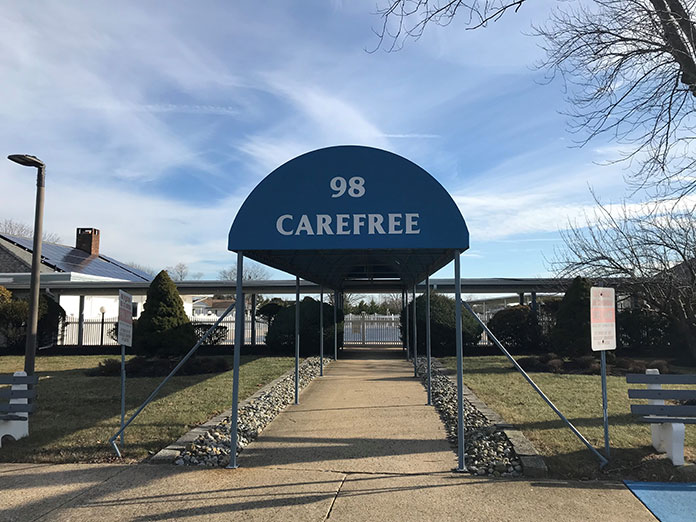
BERKELEY – You have to be at least 55 to live in senior housing, however the bylaws really don’t have much teeth. Now, the governing body will make it a township law that you have to be a senior to live there.
The Township Council recently introduced an ordinance that would change the definition of “Planned Residential Retirement Community.”
Planned age restricted communities have their own code. What this ordinance does is to make the township have a rule as well. It essentially takes a senior community bylaw and makes it a law.
Councilman Michael Signorile, who also heads up the coalition of senior developments in town, said this is a way to maintain autonomy. If more than 20% of the homes are owned by people younger than 55, then the community might lose its protected status.
Mayor Carmen Amato said that this ordinance codifies what the bylaws already state. It will keep these neighborhoods the way seniors want them.
“As more and more individuals try to take ownership,” he said, there could be families moving in with children and then that puts a strain on the school districts.
“Certain factors want to sell to younger people,” Councilwoman Sophia Gingrich said. This would prevent that from happening.
Specifically, the ordinance states that “permanent residents of communities which mandate that in accordance with (federal Housing and Urban Development laws) only persons fifty-five (55) years of age and older, along with either their respective spouse or domestic partner, shall purchase a lot or living unit” to assure that the senior community does not have its age-restricted status revoked.
The ordinance also notes that it is made in accordance with the Federal Fair Housing Act, as amended in 1988, for senior communities. This is significant because in the last few years, local officials have been fighting against state laws that would alter senior bylaws. Federal supersedes state laws.
Although the state legislators making these laws say they only want to have consistency across New Jersey on how senior developments are governed, locals were concerned about Trenton overreaching their authority. Most importantly, they have worried that this would eventually lead to action to take away the senior communities’ 55+ designation.
The ordinance does say that it may be in accordance with the provisions of N.J.S.A. 45:22A-21 et seq., which is the State Retirement Community Full Disclosure Act.
Another section of the ordinance covers the maintenance of property owned by the association, such as private roadways and recreational areas, basically keeping that under control of the senior community’s own board.
It also states that this would not be altered or revoked without a resolution from the Berkeley Township Council. If a resolution were to be drafted, the person proposing the change would have to provide notice to all owners of property in the senior community.
Furthermore, any new senior developments in the town would have to follow all of the above rules.
There have been many arguments behind the scenes about this concept. Some realtors want to open the senior communities to any kind of buyer because it’s good for business. However, some say this would drive up prices in these communities – which would drive seniors out.
Currently, there are people living in senior communities that are younger than 55. Some are children who live with their elderly parents. Some have special needs and can’t live on their own. Some are just living there in violation of the bylaws.
People in senior communities will be the first to tell you that there are school-aged children living there.
One argument against this ordinance is that sometimes adult children are given the house while the senior is still living in it. They do this to protect their finances in case they ever go to a nursing home. The value of the house is often used when figuring how to pay for care in the nursing home, and if it’s in their children’s name, the nursing home can’t touch it.
The change was introduced as an ordinance during the council’s January meeting. Ordinances get a second reading, where the public can comment, at another meeting. In this case, it will be on February 28. Between these two meetings, the township and the county planning boards have to review it. If adopted in February, it will go into law 20 days later.






